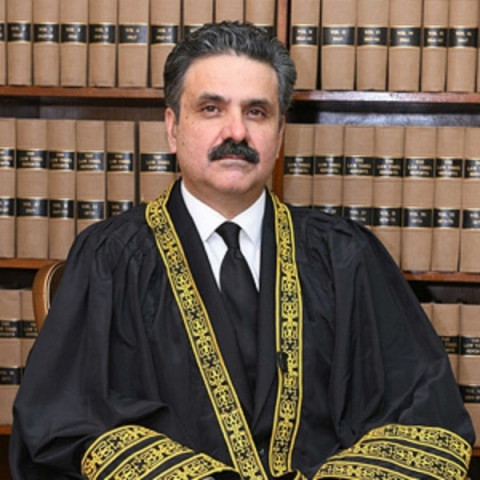Islamabad:
The Supreme Court has ordered a stay in the case in all cases currently pending before the alternative dispute resolution committees (ADRCs), which operate under the administrative control of the FBR to deal with tax matters, especially those involving state units.
The order came from a division bench led by Chief Justice Yahya Afridi, who issued a two-page directive.
It noted that during the case it was brought to the court’s attention that the FBR, in consultation with the Ministry of Law and Justice, was in the process of reviewing the mechanism of appointing members to the ADRCs.
FBR’s legal member submitted to the bench that the revenue body remains open to constructive proposals regarding the ADRC procedure as a mandate in the law.
Given that the court noted that it would be appropriate for FBR to first investigate the matter in detail.
Accordingly, the bench FBR instructed to consult Shahid Jamil, adviser to the petitioner (ZTBL), adviser to the respondent (FBR), Amicus Curiae Sultan Mazhar Sher Khan, the Attorney General of Pakistan and the Secretary, the Ministry of Law and Justice.
The order also ordered the FBR to “duly consider the statements and inputs” of these stakeholders before completing the proposed framework for the appointment of ADRC members.
“A report in this regard is submitted to this court before the next consultation date. In the meantime, there are in all cases currently pending ADRC, remain until 24.07.2025,” the court said.
Shahid Jamil, adviser to ZTBL, maintained that transparency must be ensured in the appointment of ADRC members.
However, legal experts remain divided into the current state of ADRCs and their role in dispute resolution.
A lawyer representing a state-owned company (SOE) claimed that the ADRC mechanism has proven to be “destructive” for SOEs. “They are crushed with taxation and have no remedy against ADRC,” he said, claiming that billions of rupees in taxes were forced recovered in June without the legally required messages, just to meet the income targets.
“All profit-making Soe’s are destroyed,” he added. Another lawyer claimed that ADRC should function independently and without the influence of FBR as credible.
On the other hand, Hafiz Ehsaan Ahmad, who has represented FBR in several cases, defended the institution. He explained that FBR was legally authorized to constitute the ADR committee for the settlement of tax battle and to avoid long -term trial.
However, he acknowledged that the ADR system in Pakistan has fought due to several structural deficiencies, including the absence of qualified and independent arbitrators, a lack of transparency in the ADRC composition, inadequate digital and institutional infrastructures and the most crucial, the limited bonding bonding and enforcement of ADR emergence, especially when involving the findings.



